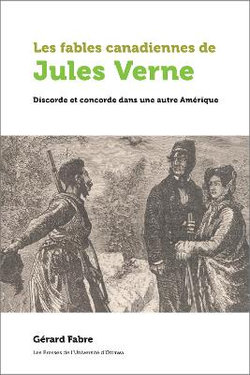Over the course of three decades--from the early 1870s to the turn of the 20th century--Jules Verne wrote three novels covering more than half a century of Canadian history.
While this triptych is undoubtedly located within the Vernian corpus, it nevertheless constitutes a body of work in its own right, a powerful testimony to the place that Canada and Quebec occupied in France. This place was relative, however, dependent on interactions with England and the United States. Several of Verne's works beginning with the publication of The Adventures of Captain Hatteras in the mid-1860s compare English and American characters. Ultimately, the rivalry that emerges between the two countries is further developed in the Canadian novels The Fur Country (1872-1873) and Family Without a Name (1889). The Anglo-American conflict explains the affinities between French Canadians and Americans present in both novels. Toward the end of his life, however, Verne revisits this alliance. In The Golden Volcano, written in 1899-1900, those relations change diametrically: French and English Canadians, all honest people in search of Klondike gold, unite against the Texans, notorious and feared delinquents. How is this reversal to be understood? What clues does it offer for understanding of the depictions of Canada and Quebec that prevail henceforth in France on a broader scale? Published in French.


Share This Book: